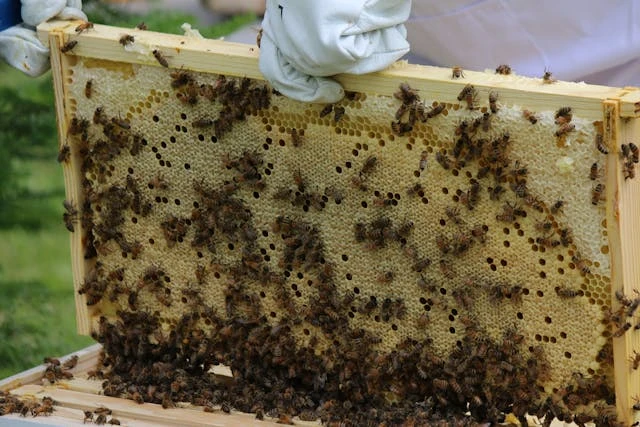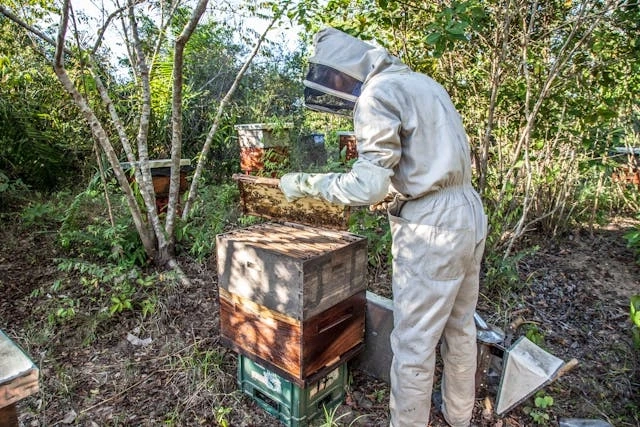Beekeeping is a fascinating and rewarding endeavor that offers a glimpse into the intricate world of bees. Whether you\'re a beginner or an experienced beekeeper, selecting the right equipment is crucial for success. This article explores the essential beekeeping equipment needed for different goals and scales of operations, as well as specialized tools for advanced beekeepers. Discover how to choose equipment that aligns with your objectives and enhances your beekeeping experience.

Understanding Your Beekeeping Goals
Understanding your beekeeping goals is crucial before diving into the world of beekeeping. Begin by defining the scale of your operation, whether it\'s a small backyard setup or a larger commercial venture. Identify your specific objectives, such as honey production or pollination services, to align your equipment needs accordingly. Your goals will dictate the type and quantity of equipment you\'ll need. For example, a small-scale beekeeper may only require a few hives and basic tools, while a commercial beekeeper will need a more extensive array of equipment. Consider the long-term implications of your goals. If you plan to expand your operation in the future, invest in equipment that can scale with your needs. Seeking advice from experienced beekeepers or local beekeeping associations can offer valuable insights into equipment selection based on your specific goals and circumstances.
Essential Beekeeping Equipment
Essential beekeeping equipment is fundamental for the success and safety of your bees. Hive components, including hive bodies, frames, and foundations provide the structure for your bee colonies. Protective gear, such as bee suits and gloves, ensures your safety during hive inspections. Tools like hive tools and smokers aid in hive management and maintenance. Feeding and health supplies, such as feeders and medications, are essential for maintaining healthy bee colonies. Investing in high-quality equipment that is durable and built to last is crucial, as beekeeping can be tough on gear. Look for equipment made from materials that are resistant to weathering and corrosion, such as stainless steel or high-density plastic.
Specialty Equipment for Advanced Beekeepers
Advanced beekeepers often require specialized equipment to meet their unique needs. Queen-rearing kits, mating nucs, and honey extraction tools cater to specific aspects of beekeeping. Monitoring devices like hydrometers and pollen traps provide valuable insights into hive health and productivity. These tools can help advanced beekeepers manage their colonies more effectively and efficiently. By investing in the right tools, you can enhance your beekeeping operation and achieve your goals more effectively.
Factors to Consider When Choosing Equipment
Choosing the right beekeeping equipment is essential for the success and efficiency of your operation. Several factors should be considered to ensure you select equipment that meets your needs and aligns with your beekeeping goals. Invest in high-quality equipment that is durable and built to last. Consider the cost of equipment to its long-term value and durability. Ensure that the equipment you choose meets any local regulations or guidelines regarding beekeeping equipment. Selecting the right beekeeping equipment requires careful consideration of several factors. By prioritizing quality, cost-effectiveness, and compliance with regulations, you can choose equipment that enhances your beekeeping operation and supports your goals.
Selecting Suppliers
Choosing the right suppliers for your beekeeping equipment is crucial for obtaining high-quality gear and reliable support. Researching supplier reputations and evaluating shipping and return policies can help you select the best suppliers for your needs. Look for suppliers with a reputation for quality products and reliable customer service. Check if the supplier offers warranties or guarantees on their products, ensuring you can return or replace items if they are defective or unsuitable for your needs. Selecting the right suppliers for your beekeeping equipment is essential for the success of your operation. By researching supplier reputations and evaluating shipping and return policies, you can ensure you get high-quality equipment and reliable support for your beekeeping venture.
Conclusion
Selecting the right beekeeping equipment is a critical step in ensuring the success and efficiency of your beekeeping operation. By understanding your goals, investing in essential equipment, and choosing reliable suppliers, you can set yourself up for a rewarding beekeeping experience. Whether you\'re harvesting honey or providing pollination services, the right equipment will help you achieve your beekeeping goals and support healthy, thriving bee colonies.


